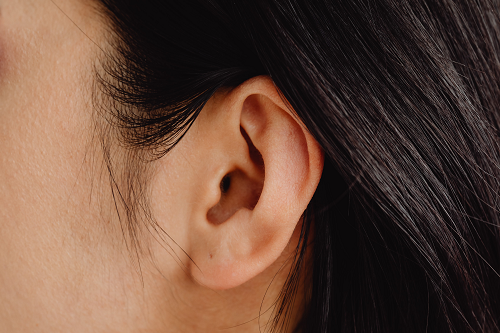Swollen Lymph Nodes Behind Ear in Children & Adults Symptoms, Causes, Treatment
The presence of swollen lymph nodes behind the ear is typically an indication that your body is attempting to fight off an infection. As a component of the immune system, lymph nodes are tiny, bean-shaped organs that aid in the body's removal of dangerous substances and microorganisms.
Swollen Lymph Nodes Behind Ear in Children & Adults
Both children and adults frequently experience swollen lymph nodes behind the ear. In both instances, the underlying cause is frequently an infection or other condition that initiates an immune response.
Children and adults with infections like the common cold, the flu, or ear infections are more likely to experience enlarged lymph nodes behind the ear. Other potential factors might include the following:
- Infections of the teeth or gums
- skin infections like cellulitis or impetigo
- Allergic responses to medicines, foods, or other substances
- Autoimmune diseases like lupus and rheumatoid arthritis
- Cancers like lymphoma and leukemia
- Swollen Lymph Nodes Behind Ear Symptoms

Swollen Lymph Nodes Behind Ear Symptoms
There are a variety of symptoms that can be associated with swollen lymph nodes behind the ear. Some of these symptoms include skin redness, soreness, and swelling. Some other possible signs and symptoms are a high body temperature, extreme tiredness, a sore throat, or trouble swallowing.
Swollen Lymph Nodes Behind Ear Causes
Lymph nodes behind the ear may swell due to an infection or another condition that causes the immune system to react. In order to keep bacteria and hazardous substances out of the body, lymph nodes, which are a component of the immune system, filter them out.
The following are the most typical causes of enlarged lymph nodes behind the ear:
Infections
Infections such as the common cold, influenza, and ear infections are the most prevalent causes of enlarged lymph nodes. Lymph node swelling can also be caused by infections of the skin, the mouth, the genitourinary tract, or the lungs, such as tuberculosis.
Allergies
An allergic reaction can also lead to enlarged lymph nodes behind the ear. A drug, food, or other substance allergy may be the underlying cause of this problem.
Immune system diseases
Lymph nodes can swell as a result of some autoimmune diseases, like lupus and rheumatoid arthritis.
Cancer
Swollen lymph nodes behind the ear may, in very rare circumstances, be an indication of malignancy, such as lymphoma or leukemia.
Inflammation
The lymph nodes may swell as a result of inflammation in the region behind the ear.
Swollen Lymph Nodes Behind Ear Treatment
The underlying cause will determine the best course of action for swollen lymph nodes behind the ear. Most cases of lymph node enlargement resolve without treatment.
Antibiotics may be recommended if the swelling is brought on by an infection. Surgery, radiation, or chemotherapy may be used to address the underlying problem if the swelling is brought on by an immunological disorder or cancer.
Warm compresses may provide relief for lymph nodes that are tender or painful due to swelling. It is advised to visit a doctor or healthcare provider if the swelling persists for longer than two weeks or is accompanied by additional symptoms.
 Reviewed by Simon Albert
on
May 08, 2023
Rating:
Reviewed by Simon Albert
on
May 08, 2023
Rating:











